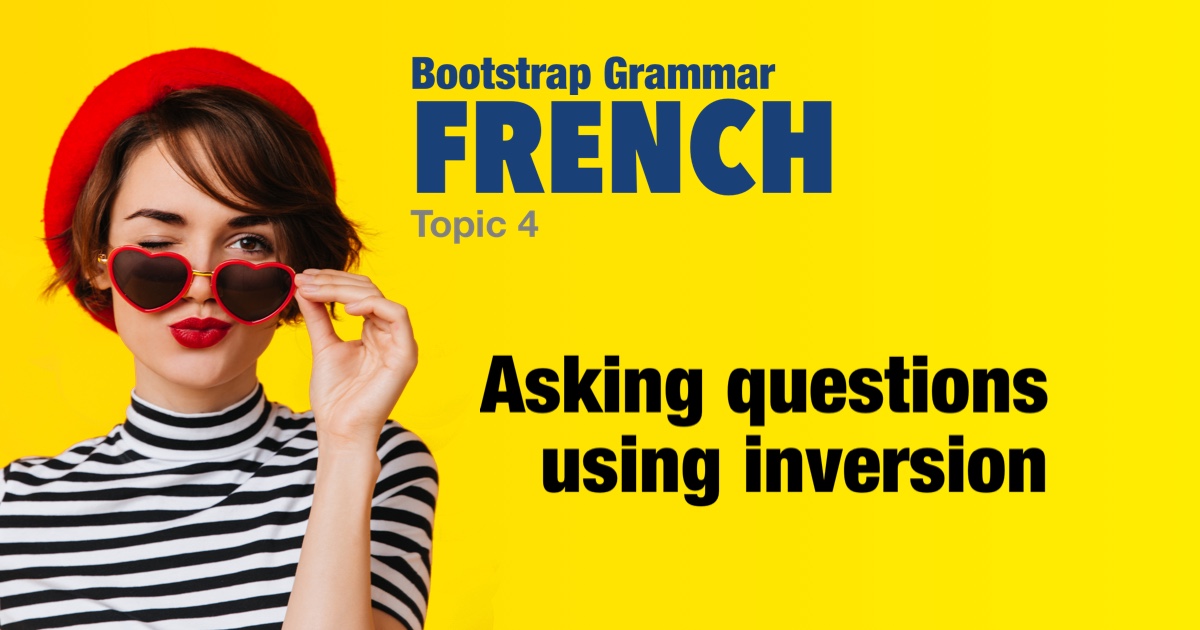French grammar - Asking questions using inversion |
|||
|
|||
Asking questions in French can be straightforward - just use a normal declarative statement with a rising intonation at the end to make it a question. But when the subject is a pronoun it is more common to form a question by inversion - that is by inverting the subject pronoun and verb and joining them with a hyphen. With inversion question words like où ('where') and pourquoi ('why') should be moved to the beginning of the sentence. Note that suis-je ('am I') is rarely used. Note also that liaison is forbidden for inverted pairs. For example êtes-vous ici - there is NO liaison vou[z] even though the following word ici begins with a vowel. |
| Examples: | |
|
Es-tu proche ?
Are you (familiar) close by?
|
|
|
Où êtes-vous ?
Where are you (formal)?
|
|
|
Pourquoi est-elle ici ?
Why is she here?
|
|
|
Sont-elles ici maintenant ?
Are they (females) here now?
|
|
|
Sommes-nous en retard ?
Are we late?
|
|
|
Est-elle française ?
Is she French?
|
|
|
Est-il anglais ?
Is he English?
|
|
|
Juliette, est-elle vraiment ici ?
Juliette - is she really here?
|
|
|
Êtes-vous souvent ici ?
Are you (formal) often here?
|
|
|
Sont-ils en vacances ?
Are they (males) on holidays?
|
|
|
Êtes-vous d'accord, Monsieur ?
Do you (formal) agree, Sir? *OR* Are you in agreement, Sir?
|
|
 |
|




